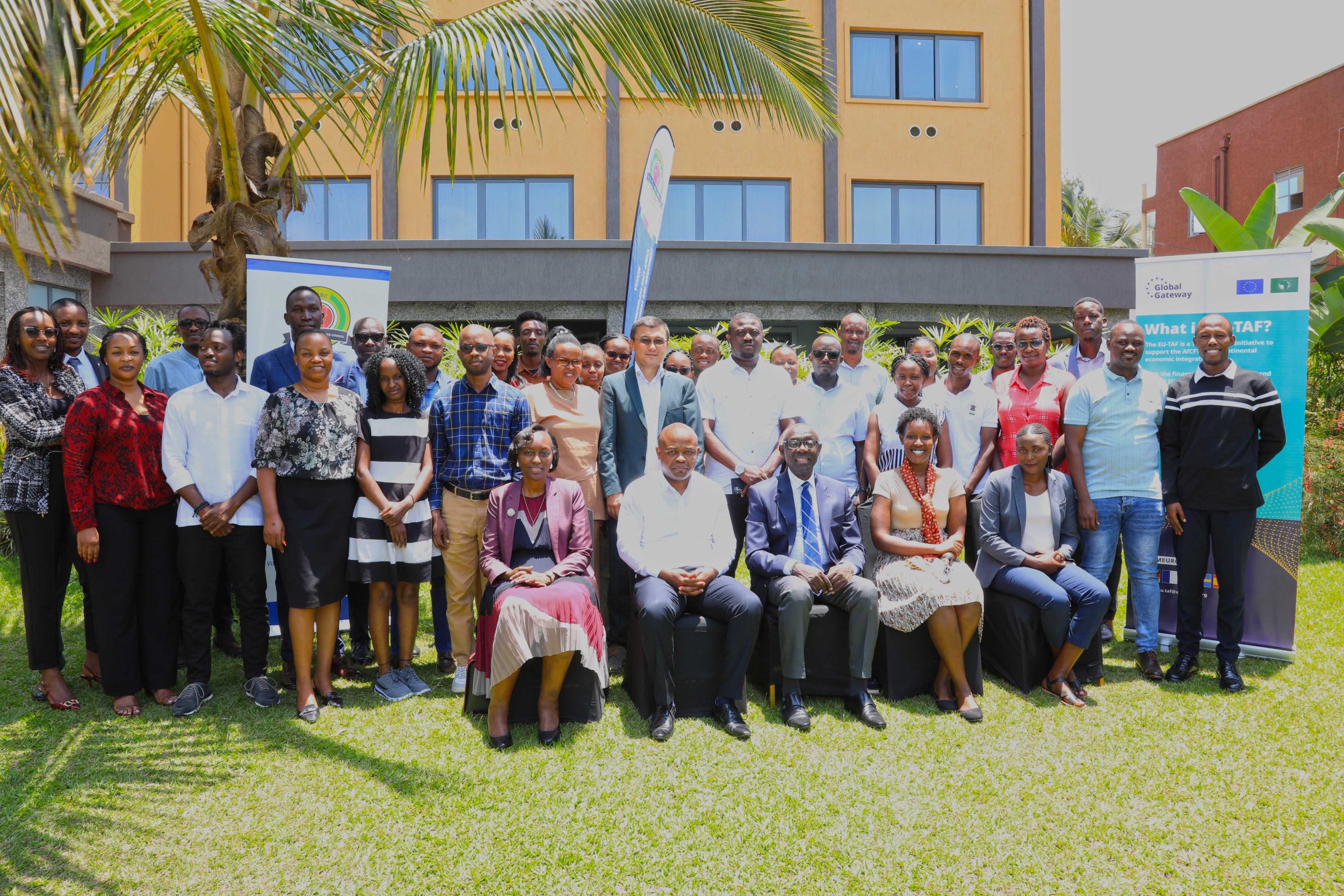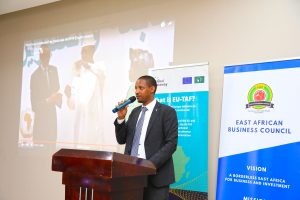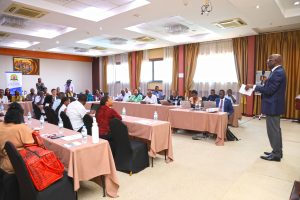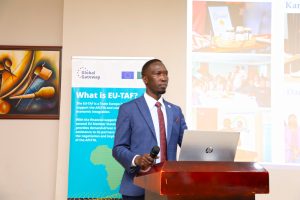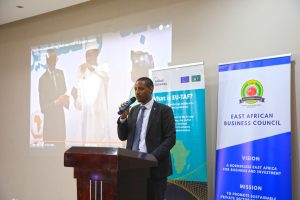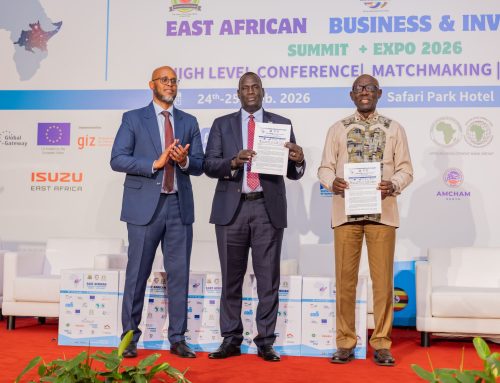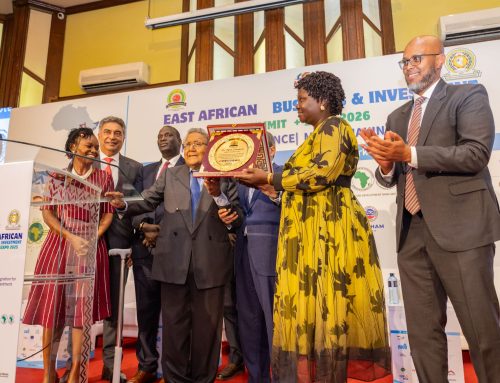Kigali, Rwanda – Thursday, 12th September 2024: The East African Business Council (EABC), in collaboration with the European Union Technical Assistance Facility (EU-TAF) and GIZ-EAC, kicked off the Capacity-Building Workshop for Rwandan SMEs focused on exporting to the African Continental Free Trade Area (AfCFTA) market through e-commerce digital platforms.
Officiating the workshop, Mr. Dennis Karera, EABC Vice Chairperson & EABC Ambassador on AfCFTA called for practical solutions to enable SMEs access export market opportunities available in the EAC and AfCFTA, enhance value chain integration and intra-regional trade. He emphasized that SMEs must embrace digital trade, as the world is increasingly becoming digital.
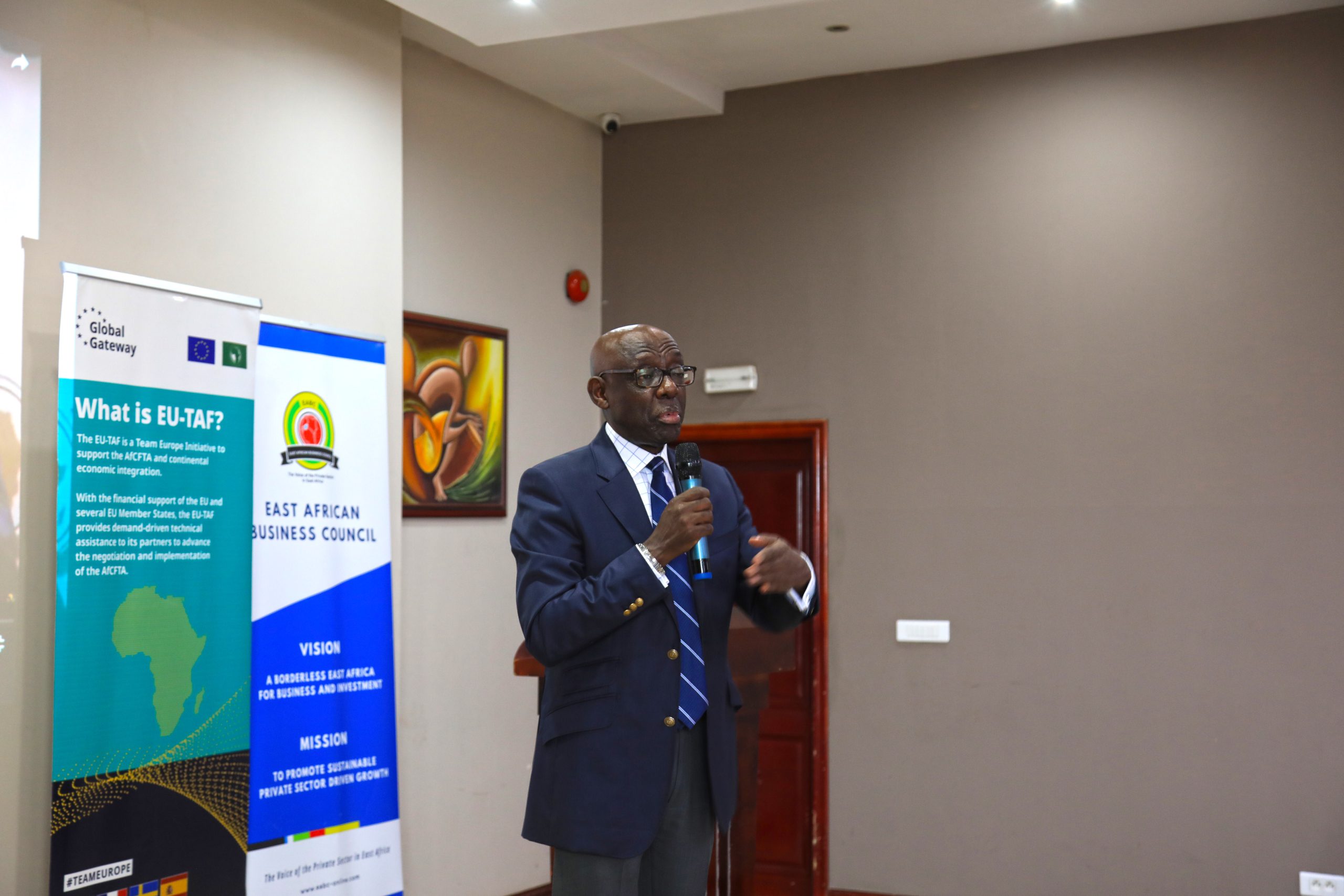 Mr. Karera highlighted that improving knowledge on cross-border trade, mapping production capacities, and strengthening market linkages are essential for SMEs to fully benefit from the opportunities provided by the EAC Common Market and the AfCFTA’s 1.3 billion population. He affirmed EABC’s commitment to present policy issues to upscale SME sectors role in trading across borders to the EAC Secretary General and the Council of Ministers.
Mr. Karera highlighted that improving knowledge on cross-border trade, mapping production capacities, and strengthening market linkages are essential for SMEs to fully benefit from the opportunities provided by the EAC Common Market and the AfCFTA’s 1.3 billion population. He affirmed EABC’s commitment to present policy issues to upscale SME sectors role in trading across borders to the EAC Secretary General and the Council of Ministers.
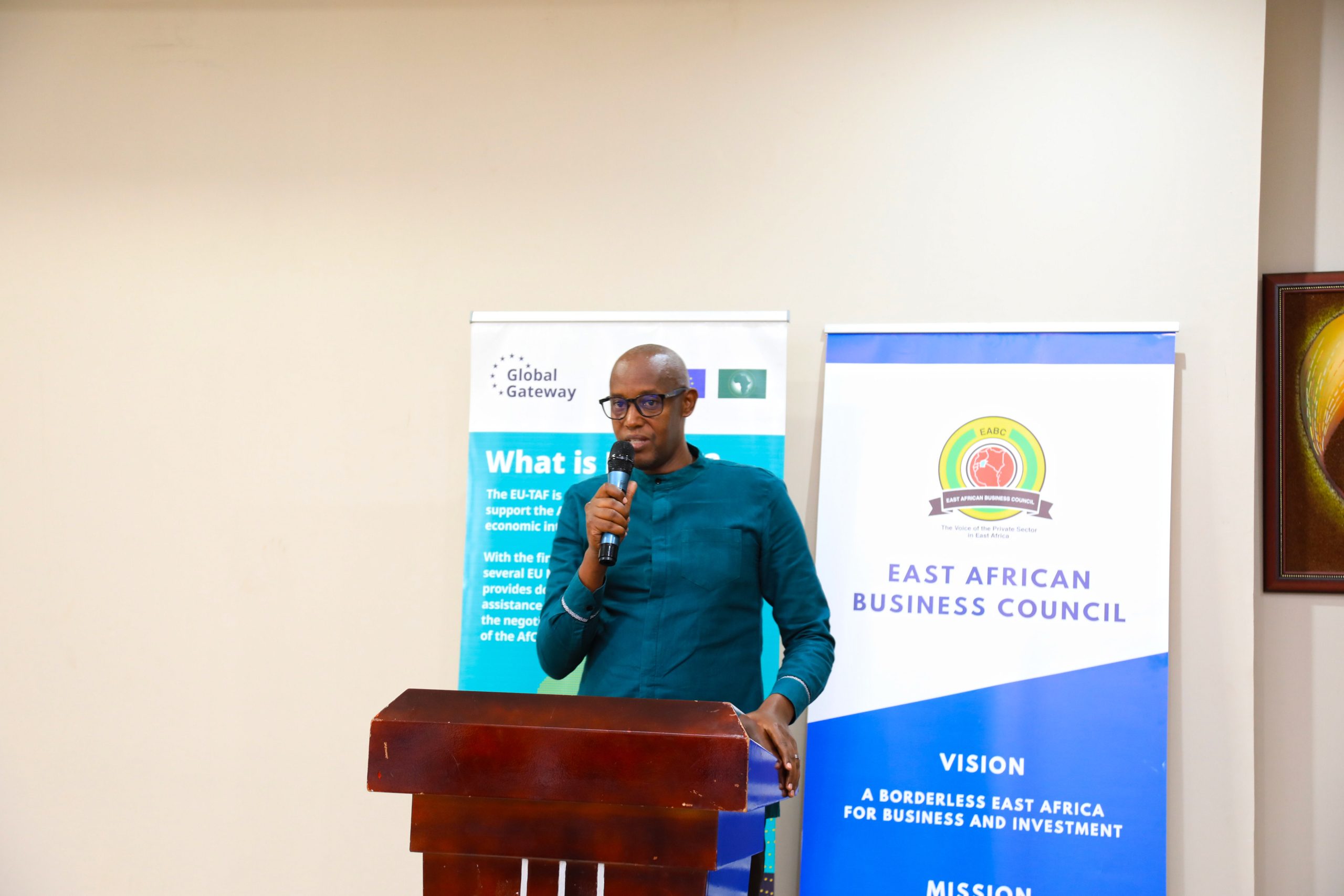 Mr. Stephen Ruzibiza, Chief Executive Officer of the Private Sector Federation – Rwanda (PSF-R), urged SMEs to adopt digital tools to upscale their businesses and compete on the global stage. He emphasized the need for improved digital infrastructure and robust legal frameworks and policies to elevate e-commerce and digital trade in the EAC region.
Mr. Stephen Ruzibiza, Chief Executive Officer of the Private Sector Federation – Rwanda (PSF-R), urged SMEs to adopt digital tools to upscale their businesses and compete on the global stage. He emphasized the need for improved digital infrastructure and robust legal frameworks and policies to elevate e-commerce and digital trade in the EAC region.
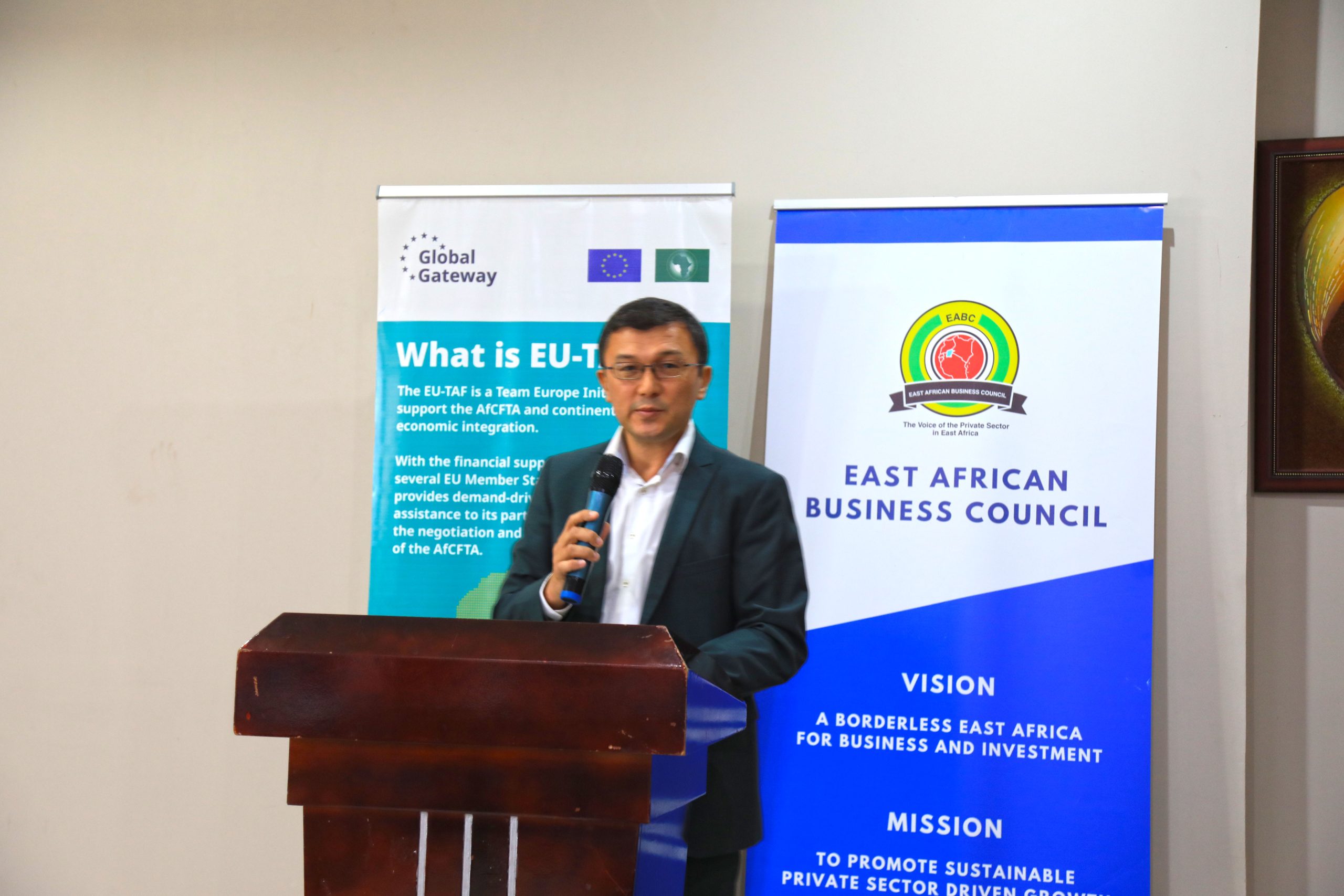 Mr. Khushnidjon Rasulov of GIZ stated that the EU-TAF is committed to promoting market access and advancing the African trade agenda. He underlined the importance of the workshop in promoting awareness and understanding of SMEs on the AfCFTA Agreement and encouraging the adoption of digital tools. He urged SMEs to participate in the upcoming Biashara Forum, organized by the AfCFTA Secretariat, scheduled for 9th – 11th October 2024 in Kigali.
Mr. Khushnidjon Rasulov of GIZ stated that the EU-TAF is committed to promoting market access and advancing the African trade agenda. He underlined the importance of the workshop in promoting awareness and understanding of SMEs on the AfCFTA Agreement and encouraging the adoption of digital tools. He urged SMEs to participate in the upcoming Biashara Forum, organized by the AfCFTA Secretariat, scheduled for 9th – 11th October 2024 in Kigali.
Mr. Otim Brian E-Commerce Expert presented on the interlinkage of AfCFTA Agreement and E-commerce strategies for businesses and platforms such as https://smesoko.com/
Some of the challenges to exporting highlighted by SMEs include low productive capacity, non-tariff barriers, access to finance, compliance with international product standards and high transport and logistics costs, among others.
The discussions also highlighted on the EAC E-Commerce Strategy, Rwanda’s AfCFTA Implementation Strategy, the AfCFTA Protocol on Digital Trade concluded in February 2024, and ongoing negotiations on the protocol’s annexes.
The two-day workshop convened 50 SMEs from various sectors (manufacturing, services, agribusiness, handicrafts, and general trading), Officials from the Ministry of Trade and Industry, Trade Facilitation Agencies, EABC Board Member Ms. Linda Kalimba, and other stakeholders were also present. The workshop showcased success stories from SMEs whose products have successfully accessed international markets and presentation on product quality from Rwanda Standards Bureau (RSB).

